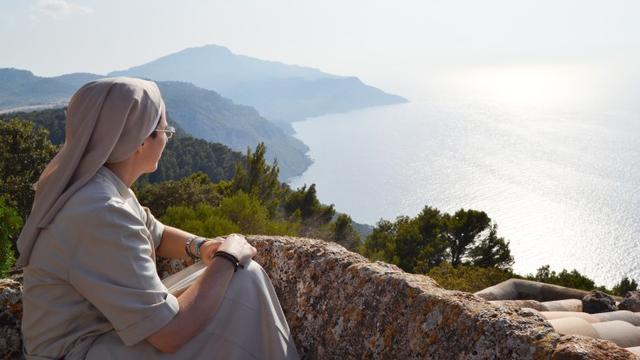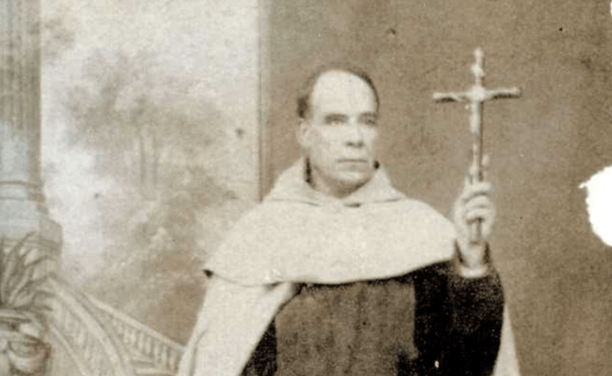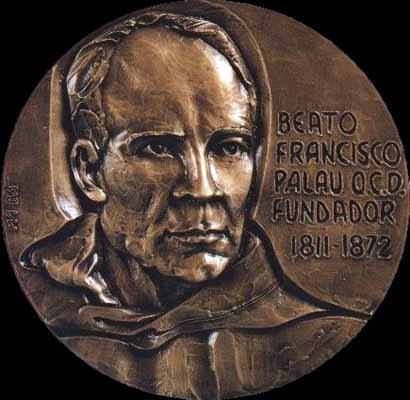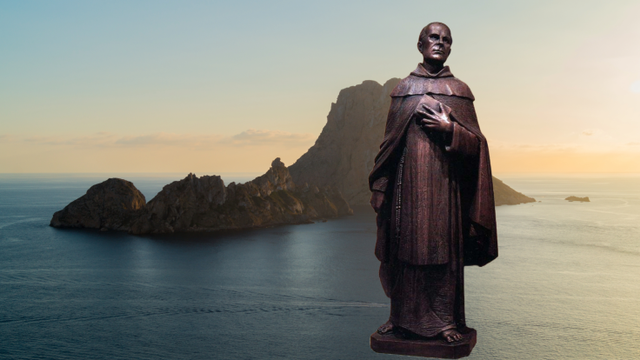Quote of the day, 7 November: Blessed Francis Palau
That same night, when I withdrew to my cave, I saw a shadow at my side; and the shadow had a form, and it represented a reality. The form was all illuminated like the light of the moon. And the shadow spoke to me, and said:
[The shadow:] “Am I the one you seek and call?”
[Francis:] “Ah, I cannot be content with forms and shadows.”
[The shadow:] “Yes, it is true,” she replied, “but reality comes to you represented through shadows, enigmas, images and forms; without them, it cannot come to you, nor can you see it while your eyes are of mortal flesh.”
[Francis:] “What a miserable condition!”
[The shadow:] “Yes, accept it.”
[Francis:] “Who are you?”
[The shadow:] “I am your Beloved.”
[Francis:] “A shadow! A form?”
[The shadow:] “Yes, the form of your Beloved.”
[Francis:] “Without reality?”
[The shadow:] “Do you believe in me?”
[Francis:] “Yes, I believe in you.”
[The shadow:] “If you believe in me, behind the shadow you will always see the reality; in the form, the thing represented; in the idea, the being; in the image and likeness, the immense beauty that has stolen all the affections of your heart. Faith in me is a light that, radiating upon your understanding, will reveal to you more and more, behind the shadows, ideas, forms and images of a woman ever-virgin, who I am, and my love for you.”
[Francis:] “Are you a woman?”
[The shadow:] “Yes, I am a woman appearing as a shadow, formed in your understanding. In your understanding I exist as the idea of woman; in your imagination, as a form; in heaven, as a reality.”
[Francis:] “You are a young woman, beautiful, without blemish or wrinkle, always chaste, always pure, always virgin. And are you in heaven?”
[The shadow:] “Yes, in body and soul, in glorified flesh.”
[Francis:] “What is your name?”
[The shadow:] “I am Mary, the Mother of God.”
Blessed Francis Palau y Quer
Mis relaciones con la Iglesia
Autograph manuscript, 14 April 1864
Note: Blessed Francis Palau y Quer was born to José Palau y Antonia Quer on 29 December 1811 in Aytona (Lerida) Spain. Founder of the “School of Virtue”—which was a model of catechetical teaching—at Barcelona, he suffered much during his life and ministry. While in exile at Ibiza in the Balearic Islands, often Blessed Palau would row to the rugged island of Es Vedra and pray in the solitude of a cave. He began to write his autobiographical journal, Mis relaciones con la Iglesia (My relations with the Church) in that solitude.
Palau y Quer, F 1977, Mis relaciones con la Iglesia, Carmelitas Misioneras, Rome, viewed 5 November 2025, https://www.carmelitasmisioneras.org/download/mis-relaciones-con-la-iglesia/#.
Translation from the Spanish text is the blogger’s own work product and may not be reproduced without permission.
Featured image: Sister Vanesa Guerrero of the Purity of Mary Sisters looks out over the Balearic Sea at Valldemosa, Mallorca. Image credit: Vanesa Guerrero, rpm / Cathopic
#BlessedFrancisPalauYQuer #BlessedVirginMary #journal #MotherOfGod #mysticalExperience



